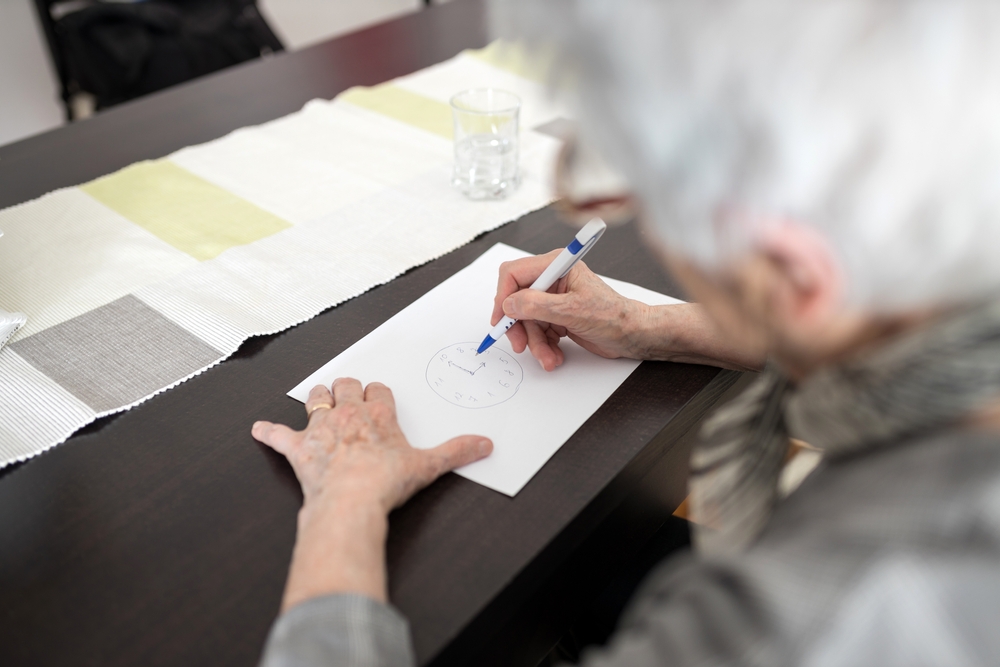
Diagnosing Dementia when family or friends suspect that a loved one has memory loss, an examination with a doctor can determine whether the patient has mild cognitive impairment due to aging or something more severe, such as dementia.
In the last years, better understanding of dementia has allowed clinicians to diagnose earlier in the disease’s progression. Early diagnosis allows the patient and their loved ones to make plans for their medical care. Although patients in the earlier stages can still live independently, people with advanced dementia require constant care.
Those planning to see a doctor for a dementia evaluation should take note—there isn’t just one test that can diagnose dementia. The doctor usually has to run multiple tests and the process can take several weeks.
Decoding Dementia
Dementia is a disease that happens to many people, even if they do not have a family burden. In 2019 Alzheimer’s World Report95 percent of people said they believed it could happen to them, and 79 percent reported they were worried they would one day develop dementia.
Despite concerns about dementia, the study also concluded that many people around the world do not understand the disease and there needs to be an awareness initiative to educate people and reduce stigma.
What is dementia?
Dementia is a progressive neurological disease that initially involves memory loss and then progresses to loss of cognitive functioning. Alzheimer’s disease (AD) is the most common type of dementia. There are more than 100 types of dementiaand many patients are diagnosed with more than one type.
Read more: The 4 main types of dementia
Is dementia hereditary?
Depending on the type of dementia, genetics may play a role in the likelihood of a person developing the disease. And 2019 JAMA The article examined medical records and found that people with a genetic risk of dementia were more likely than those without a genetic risk to develop the disease.
In the study, researchers looked at records from a British “biobank” where people shared their medical records, including information about their lifestyle, such as whether they drank a lot of alcohol, smoked or had an exercise routine. Researchers analyzed data from around 200,000 people aged 60 and over and found that people who had a genetic risk and an unhealthy lifestyle were 2.5 times more likely to develop dementia than those with a healthy lifestyle. life and without genetic risk.
Read more: Does melatonin cause dementia?
Diagnosing dementia
Early dementia includes loss of episodic memory, meaning the person forgets to attend appointments, pay bills, or take medication as prescribed. Although the patient will initially retain long-term memories, they struggle with new information. They will fail to remember someone’s name or forget that they recently attended an event, such as a family picnic.
How is dementia diagnosed?
During an evaluation, a doctor will consider a person’s family history of the disease as one of many factors. Assessments usually begin with a discussion that assesses the patient’s behavior.
This requires help from a close family member or friend who can either confirm the patient’s concerns or tell the doctor what they have noticed.
During this appointment, the doctor may proceed to aptitude testing. There are several types of tests that a clinician can use to measure a patient’s memory, language abilities, and awareness of their surroundings. These are not self tests, and doctors will use them along with other diagnostic tools.
Dementia testing
The Mini Mental State Examination or the Montreal Cognitive Assessment are similar tests that take less than 15 minutes. Each test is one page long and uses a 30-point rating scale. The patient is asked to perform memory recall tasksincluding a delayed recall task that required the subject to repeat at least three of 10 words listed five minutes earlier.
Patients also complete a clock drawing task. The clinician asks them to first draw a circle to represent a clock and then fill in the numbers. The clinician will usually ask the person to draw arrows indicating that the time is 10 minutes past 11 o’clock. Patients with early stage dementia will not be able to complete the task.
Assessments also include language assessment tasks as well as time and place orientation. These tasks help indicate not only whether the patient has dementia, but also what type. Patients with frontotemporal dementiafor example, experience frontal and temporal lobe impairment, which may be revealed if they struggle with language assessment tasks.
Can an MRI detect dementia?
Yes, an MRI can detect dementia. An MRI or positron emission tomography (PET) scan can show whether a person’s brain is deteriorating, developing lesions or the plaques and tangles associated with AD.
Even before a person shows symptoms of memory loss, changes occur in their brain that can be detected by imaging, before the patient or their loved ones even realize they have dementia.
Read more: Can cats get dementia?

